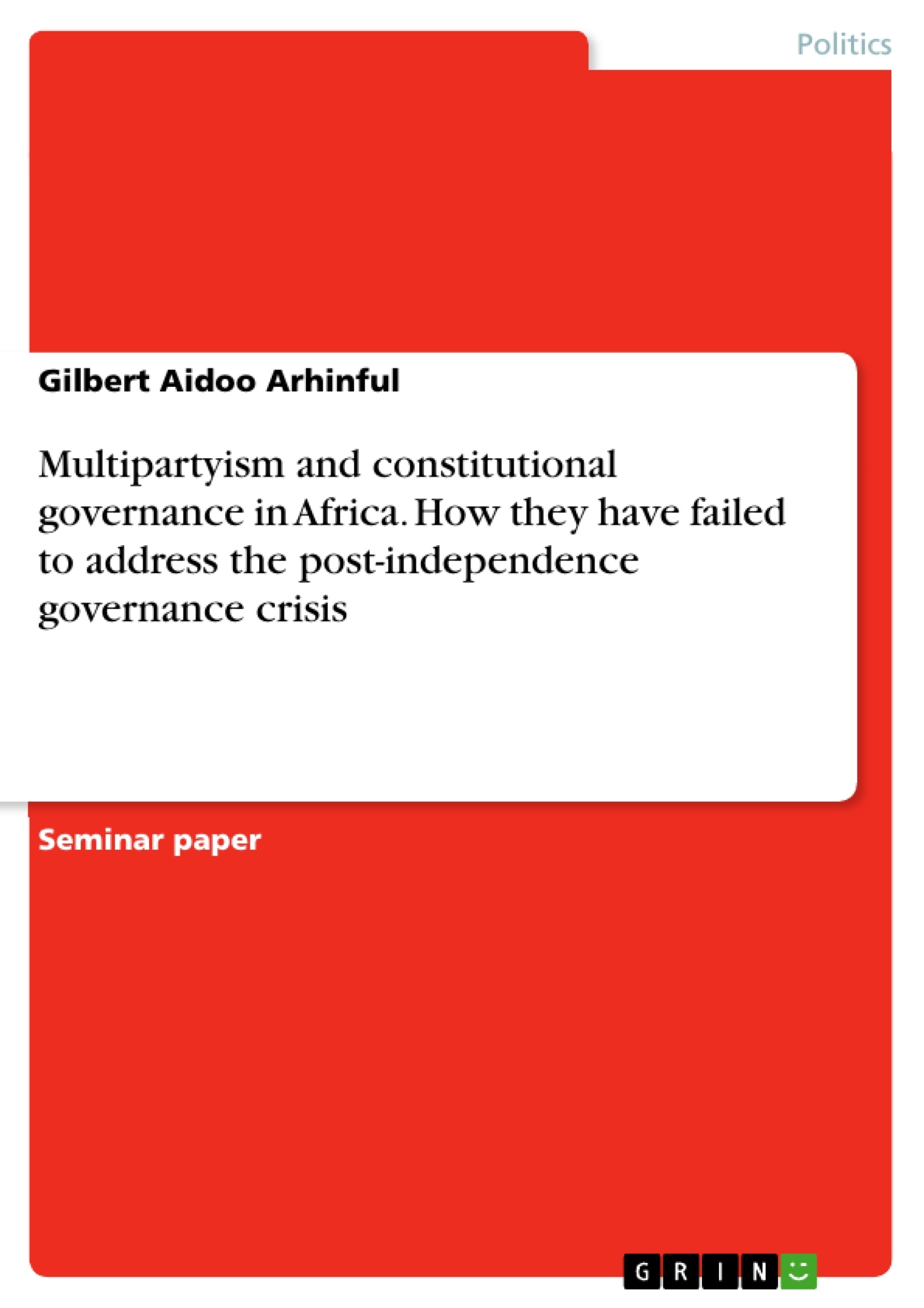This paper presents a brief overview of experiences of multipartyism and constitutional democracy in Africa. It also examines how multipartyism and constitutional rule has failed to address the post-independence governance crisis in Africa. The main position advanced by this paper is that, while constitutional governance and multipartyism have been widely but reluctantly accepted by many African leaders, they have failed to build and allow democratic institutions to work in Africa.
Since independence, African countries have been confronted with myriads of costly political, economic and security crises, with many deleterious effects on the region’s progress. At independence, most if not all African leaders committed themselves to the path of democracy and good governance but would soon shy away from it. The constitutions of most of the emerging states were therefore, sooner than later, subjected to numerous amendments carried out in a manner that undermined the essence of constitutional rule and principles of multiparty democratic governance. What would follow is emergence of both civilian and military authoritarian regimes and concomitant governance, development and human rights crises (Ibid).
However, demise of the Cold War and concomitant collapse of the Communist Block in 1989 would return the euphoria for democracy and departure from authoritarianism (both military and civilian) by many African countries. The early 1990s saw an adoption or a return of multiparty democracy in several African countries and promulgation of new constitutions to help consolidate the new systems of government. The so-called third wave of democratization brought to bear, great pressure on African authoritarian leaders (mostly military regimes) to adopt freer multiparty democratic political systems - an era Lucian Pye (1990), referred to as “the global crisis of authoritarianism”. The continent witnessed, more than ever, agitation for comprehensive constitutional reforms and good governance during this era.
Multipartyism and constitutional governance in Africa. How they have failed to address the post-independence governance crisis

Term Paper , 2018 , 11 Pages , Grade: 85.0
Autor:in: Gilbert Aidoo Arhinful (Author)
Excerpt & Details Look inside the ebook

